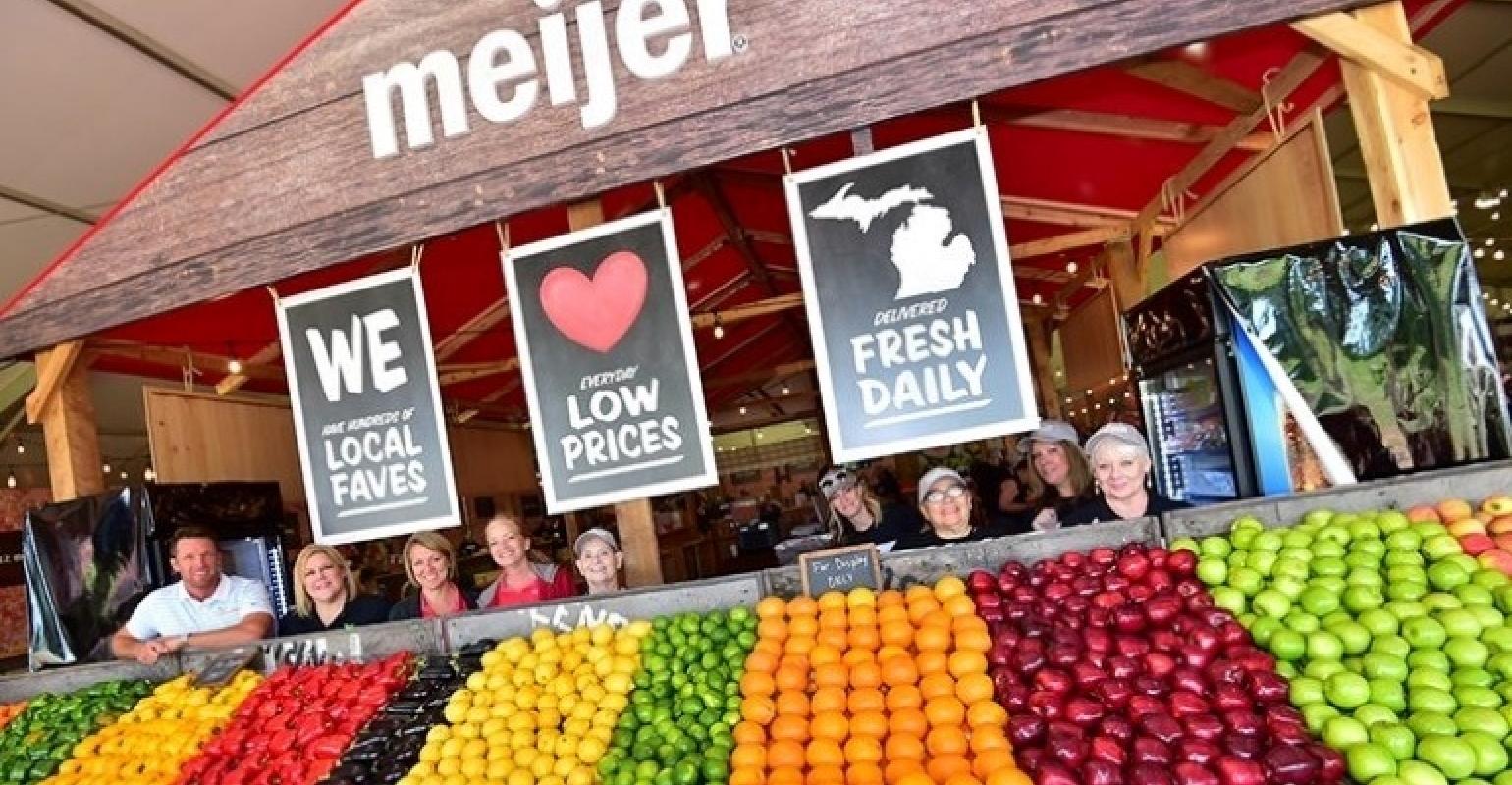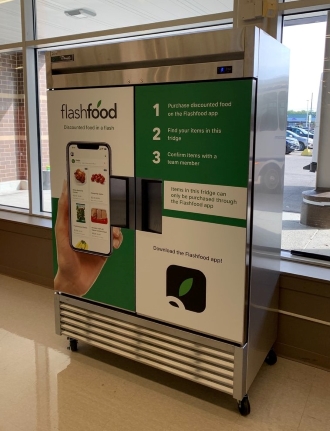Waste Not, Want Not
"It’s been really successful for us this summer. This location in particular has been able to save our customers thousands of dollars and we’ve also been able to divert over 11,000 pounds of waste. It’s pretty exciting."
"Most of us… buy large quantity items and package them up and freeze them. So we have short-dated items in these coolers, like meat or chicken or hamburger. You can easily pack it and save it for another day so you can feed your family and it costs pennies."
"Sometimes you have a bag of perfectly good produce or fruit or vegetable, and there’s one bad apple or one rotten lemon. We can… open the package, take those really good quality items and put them into boxes and sell them for a significantly discounted price to our customers."
Tarla Confiant, manager, Edmonton Superstore
"A company that can make money while making a big social impact is an entrepreneurial dream come true. I think that the backbone of Canada's economic future depends on innovators like Josh….Josh [Josh Domingues, CEO, Flashfood] might have the right plan, experience, and competitive advantage to disrupt the industry in a meaningful way."
"When pitching a business in its early stages, elaborating on your business background and highlighting your strengths as an entrepreneur will greatly help offset any doubt investors may have in the concept. Time will tell what the future holds for this entrepreneur and his big vision, but with a deal like that, things are looking pretty bright."
Jasmin Ganie-Hobbs, major accounts manager, Business Development Bank of Canada (BDC)
 |
| Meijer produce area |
"Food is at the core of what we do, and we are constantly looking at ways to minimize in-store waste because it’s the right thing to do for our communities and our customers."
"We are excited to work with Flashfood and learn how much food can be spared from landfills."
Don Sanderson, group vice-president of fresh, Meijer
"Bringing the Metro Detroit community the ability to buy such great food at huge discounts while reducing food waste is exciting."
"Meijer is a well-respected market leader focusing on innovation and it's evident through our partnership. Both teams are thrilled about the impact we're bringing to market in this pilot."
Josh Domingues, founder, CEO, Flashfood, Toronto
 |
| Food purchased on the Flashfood app will be stored for customer pick-up |
In this age of the Internet, convenience and compressed time, it's an idea whose time has come, quite obviously. Deeply discounted groceries linked with decreasing the amount of food waste that regularly goes into dumps when supermarkets are left with stale-dated grocery products and over-ripe fruits and vegetables. True, most supermarkets do make an effort to slash prices on foods nearing or just past their best-before dates as well as too-mature produce, but it is only shoppers who happen to be at the store physically that can take advantage of deep discounts whose effect reduces the store's waste.
The Toronto startup enables its clients to use the Flashfood app at partnered supermarkets to view the perishable foods available at a huge mark-down and order what they want to bring home with them when they drive by and pick up whatever looked appealing and price-irresistible. So much perfectly good food ends up in landfills, an unjustifiable waste which led Meijer to try the Flashfood app at four Michigan outlets where grocers upload "close-dated" items -- fresh foods closing in on their best-buy dates, at up to 50 percent off.

Customers pick up their selected discounted groceries which can consist of baked goods, deli products, meat, produce and seafood -- from a refrigerated case or shelving unit at participating stores. That grocery stores face a food waste problem is well-established. They can and do donate many food items to local food cupboards, and some foods can be re-purposed for animal feed. Yet the problem remains simply because it is so endemic and so vast. Some 73 billion kilograms (160 billion pounds) of perishable food ends up in landfills in North America on an annual basis at a cost to grocers of around $24.2 billion yearly.
Food retailers such as Kroger, Target and Whole Foods in the U.S. have experimented with 'order-to-shelf' technology in the hopes of reducing food waste, even while the creation of a market for 'ugly produce' failed to grab the food shoppers' imagination as had been anticipated, despite the well-executed public relations effort to convince shoppers that misshapen produce is every bit as fresh and nutritious as their 'perfectly shaped' counterparts. The discounted produce effort simply failed to resonate with shoppers, leading the retailers to set the initiative aside as a failure in alternate marketing.
Loblaw, Canada's largest food retailer, decided earlier in the year to partner with Flashfood where the service is now available at 405 locations across Canada. "It cuts down on grocery costs, it's easy to do online and you just pick it up", one satisfied customer in Ontario enthused. "Often it solves the 'what's for dinner' problem. I just see what's available."
 |
| Food waste costs grocers about $24.2 billion yearly representing 160 billion pounds of wasted food |
Labels: App, Cost, Environment, Food Waste, Grocers, Internet

0 Comments:
Post a Comment
<< Home